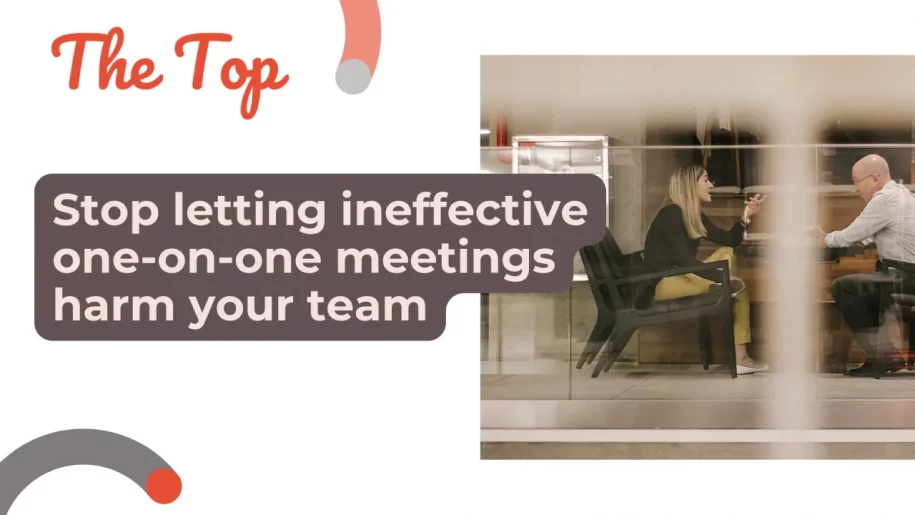Stop letting ineffective one-on-one meetings harm your team
I was conducting a Manager Effectiveness Master Class session today, and one participant asked me, “How can we gauge the mood of our team members? Or make them comfortable to speak their concerns openly to me.” Effective one-on-one meetings are among the best ways to gauge your team’s mood. But, a similarly ineffective one-on-one meeting can take the train the other way too very quickly. So often, starting a chain of one-on-one catch-ups with your team seems easy until it becomes too tiresome and repetitive for the managers and their team members. Good one-on-one meetings bring up relevant issues, enable healthy relationships between managers and teams, and keep managers up-to-date with the team’s concerns. However, bad one-on-one sessions impact the team negatively too. But before that, what does a bad one-on-one meeting experience look like? Here are some signs:- The conversation is going nowhere. If you wonder why you are in that room and what you are talking about, it’s a huge red flag.
- Either the manager or the employee has a negative or defensive attitude during the meeting, preventing constructive discussion.
- One person dominates the conversation throughout the meeting.
- No impact comes from these meetings if they are mere meetings in themselves, without those inputs being used to improve things around them.
- Review previous meeting notes: Review the notes from the previous one-on-one meeting with the team member to refresh your memory on what was discussed and any identified action items.
- Set an agenda: Create an agenda for the upcoming meeting that includes topics to be discussed, any questions to ask, and any feedback to give. This agenda can also be shared with the team members to help them prepare.
- Ask for employee input: Ask the team member if there are any specific topics they would like to discuss during the meeting. It ensures that the employee feels heard and that their concerns are addressed.
- Come prepared with relevant information: Bring all pertinent information or data to the meeting that will help facilitate discussion and decision-making.
- Change the environment: Consider changing the meeting location, such as going for a walk or having a virtual meeting instead of an in-person meeting. Changing the environment can help break the monotony and stimulate new ideas.

